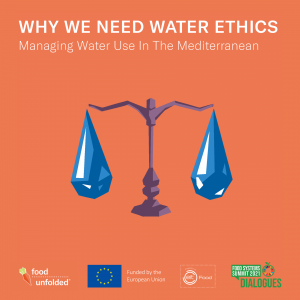Официальная обратная связь диалога для Саммита ООН по продовольственным системам 2021 года
Виды диалогов
Организатор
Язык диалога
Дата/время
Окончание
Город
Местоположение
Формат
Просьба ознакомиться с приводимыми ниже данными для получения регистрационной информации, если таковая имеется, или обратитесь к руководителю диалога, если желаете принять участие.
Куратор
Описание
Context:
Water scarcity is an increasing problem in our world. While it’s true that water covers 70% of our planet, only 3% of it is fresh water (the water we drink, use to wash ourselves, and to irrigate our crops in absence of rain) and two-thirds of it is found in frozen glaciers or in other places making it unavailable for our use. For this reason, around 4 billion people already live under conditions of sever water scarcity for at least 1 month of the year.
The Challenge:
Agriculture and food production account for around 70% of worldwide water use. With an ever-increasing global population and rising temperatures, water scarcity is predicted to increase across all continents. The Mediterranean basin is one area of the world that will suffer the consequences of climate change. Besides temperature increase, most models consistently predict rainfall decreases throughout all seasons. This will have a significant impact on water availability for food production and water consumption in the region – in just two decades, an additional 250 million people will suffer from water scarcity due to droughts in the Mediterranean alone.
The Question:
Which ethical frameworks do we need to adopt in order to change our future water management and consumption so everyone can get access to this resource? How can we move beyond our exploitative mindset when thinking about our relationship to water – and to the world as a whole?
The Future:
Together, we can imagine a future where water management and consumption is driven by a different kind of ethics, that helps us share this precious resource in an efficient, cautious, grateful, and conflict-free way.
In this dialogue we’re looking to discuss and explore:
- What is our current relationship to water availability?
- How can we already shift our perception and behaviour before it’s too late to act?
- Should we pay more for water so we don’t waste it?
- How can we change our food consumption habits to reduce our water footprint?
- Why and how should farmers and industry cut back on water use?
- What are some tech innovations that could help us to manage water in a better way?
- Are the current standards for water rights in the Mediterranean Basin enough?
- How should we think about water rights?
- What is our responsibility to people living in other parts of the world and struggling to access water?
- How can we control water prices when facing water scarcity?
These questions will be addressed in four key areas:
- Industry and farmers’ responsibility for water use in food production
- Consumer responsibility and personal water footprint
- Government responsibility and policies
- Financial responsibility and water privatisation
Your view
This dialogue invites the millennial generation from the Mediterranean Basin to discuss these questions openly and honestly from their own perspectives as consumers, as well as their roles (if applicable) in agriculture, industry, policy innovation, finance, and sales.


